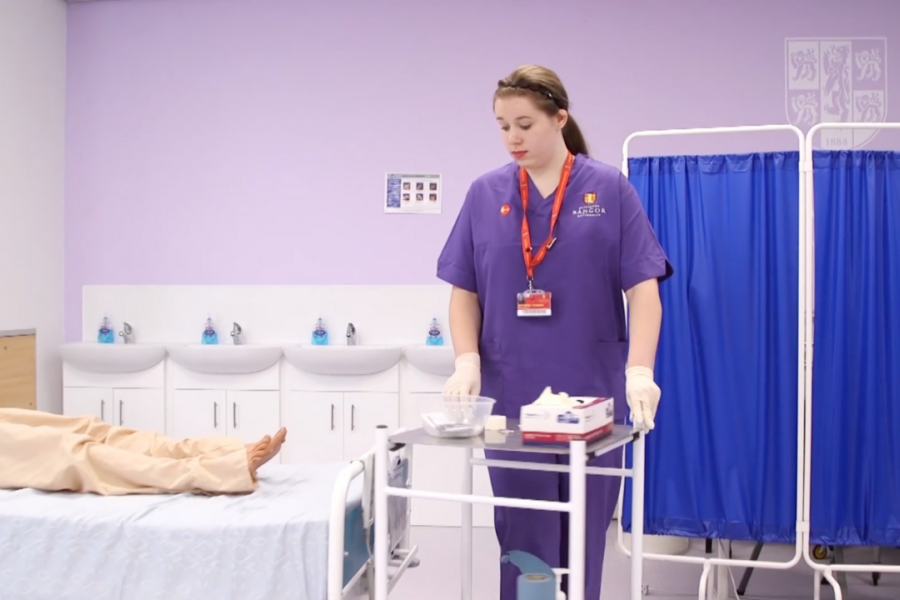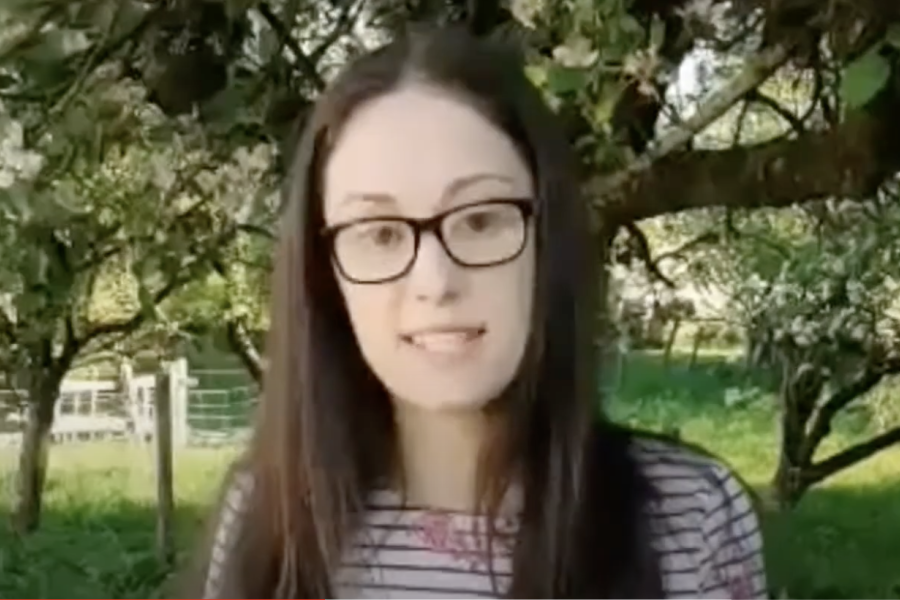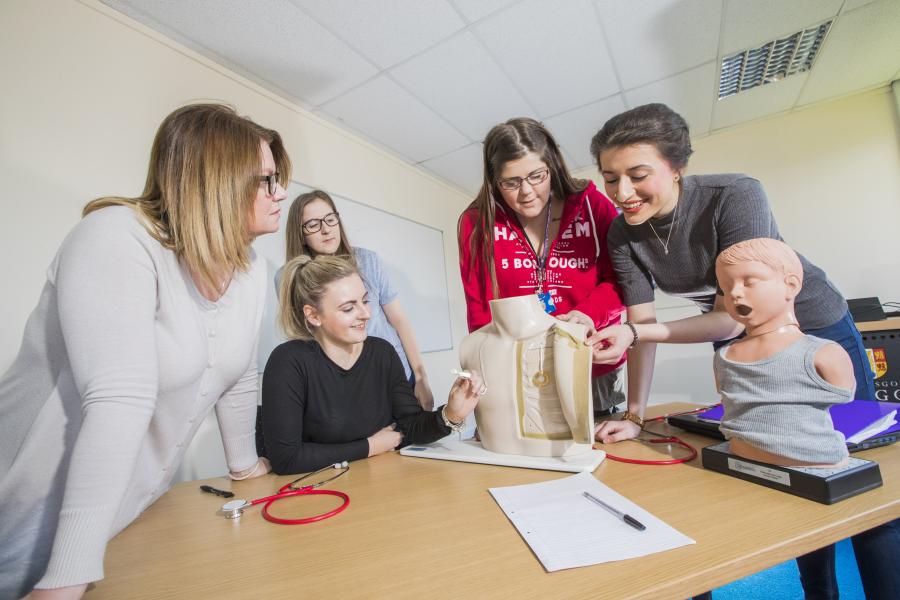About This Course
Children and young people’s (CYP) nurses care for all ages, from new-born to adolescent, with a range of physical, emotional and mental health needs. CYP nurses also work closely with family members and carers to reduce the impact of being ill or in hospital. The course includes generic nursing topics and child field specific subjects and placements in a wide variety of settings including urban and rural, community, special care baby units, hospices and mental health.
As a children’s nurse you’ll care for children across the age spectrum and with a wide variety of needs. You’ll also work in partnership with family members and carers to reduce the impact of being ill or in hospital and providing comfort and reassurances to patients and their parents or careers in difficult or stressful circumstances. The role is highly rewarding and can also be challenging in today’s fast changing health care environment. Working in collaboration with other healthcare professionals, children’s nurses work in a variety of settings that follow a patient’s journey away from home, close to home or in the home giving you real variety in your career.
The course will prepare you to become a CYP nurse who is able to demonstrate critical thinking skills in relation to complex healthcare issues and the health and wellbeing of children, young people and their families. It will allow your compassion to thrive within an evidence-based approach and it will enable you to make a genuine impact on the health and wellbeing of babies, children, young people and their families.
You’ll go on placements across all the three years of your course and experience a range of clinical areas across Wales such as hospitals, special care baby units, hospices, mental health services, community children’s nursing teams as well as specialised paediatric intensive care units.
Bangor accepts applications for nursing courses throughout the year, while places are still available. The child field pathway is very popular therefore we recommend applications are submitted as soon as possible.
Elements of the course will be available through the medium of Welsh and there will be opportunities to experience bilingual practice in some parts of the region. For more information on the School's bilingual provision click here.
Why choose Bangor for this course?
- NHS funding currently available to cover fees and a contribution to living costs.
Tuition Fees Covered
If you are considered a home UK student for tuition fees who can commit to working in Wales for two years after graduating, you could get your tuition fees covered in full through the NHS Wales Bursary Scheme and claim for a £1,000 bursary contribution towards living costs. You can also apply for the means tested bursary that is dependent on household income and other funding that has eligibility criteria for child care support, dependents allowance and parental learner allowance. You can also apply for the income based maintenance funding and a reduced rate loan from Student Finance. As this course is funded by NHS Wales, we are unable to accept applications from international students.
Full details are available on our NHS funding page.
Campus and placements
The course is delivered at the Bangor campus and all clinical placements are provided in north west Wales. Regional learning hubs are being established giving you real flexibility in how and where you learn.
Course Content
You’ll have compulsory theoretical study and clinical placements in hospitals, community and/or residential settings in north Wales. Closely supervised placements, that enable you to observe professionals at work and participate in the delivery of nursing care, start early in the course. Support is available from a personal tutor who is a registered nurse and an academic member of staff. On placement, you’ll be supported by registered health professionals known as practice supervisors and practice assessors who will supervise, assess and encourage your clinical learning and development. Theoretical and practical work is assessed through assignments, examinations, presentations and the All-Wales Assessment of Clinical Practice portfolio.
Our dedicated team of children’s lecturers have experience, including acute and community children’s nursing, neonatal,critical care, orthopaedics, hospice care, accident and emergency, and children with complex needs. The Team are committed to supporting students to realise their potential to become compassionate, competent and autonomous Children’s Nurses, able to meet current and future healthcare demands.
What will you study on this course?
The course is based equally on theory and practice – 50% is on theoretical study and 50% is spent in clinical practice developing competence needed for entry to the NMC’s register. You’ll develop skills and professional behaviours, values and attitudes expected of a nurse to ensure the safety and protection of people of all ages and their carers and families. While you’ll specialise in children’s nursing from the start of the programme, there are opportunities to study alongside other student healthcare professionals and the School has a strategy for interprofessional learning. Within the individual degree programmes there are shared learning opportunities for all fields to learn together about common or generic elements such as anatomy and physiology, psychology, sociology, communication, reflection, law and ethics. This interprofesssional learning enables multidisciplinary working from the outset and an appreciation of how the elements of health care fit together in the patient journey. Sharing ideas between health disciplines will broaden your perspective on healthcare, and help you focus on specific skills you develop in your own field of nursing. By fully engaging with this programme you’ll develop skills in family centred-patient care, effective health promotion, learn about the effects and management of acute and long-term childhood illnesses, assess pain and psychological responses to ill health and learn play and distraction techniques as well as many other techniques. This will enable you to deliver high quality child nursing care in a rapidly changing environment.
For 2022 entry the Bachelor of Nursing programme for all four fields is mapped to the 2018 Nursing and Midwifery Council Standards of proficiency for registered nurses and the Future Nurse: Standards of proficiency. The new programme ensures nurses have greater understanding of patient/client needs across all four fields of nursing practice, but remaining field focused. The programme prepares future registrants with team working and leadership skills and more knowledge in the area of public health needed to deliver care in different settings to support health and well-being for clients and patients.
Modules for the current academic year
Module listings are for guide purposes only and are subject to change. Find out what our students are currently studying on the Children's Nursing BN (Hons) Modules page.
Course content is for guidance purposes only and may be subject to change.
Facilities
Nursing facilities
- The University has newly refurbished clinical skills facilities which include a two bed High Fidelity suite, a seven bay ward and additional flexible clinical skills areas that provides a simulated environment that will help to prepare you for clinical placements.
- High Fidelity simulation involves the use of sophisticated life-like mannequins in realistic patient environments which have that the ability to mimic at a very high level a broad range of human body functions.
- This immersive learning will include using simulation to transport students to practical scenarios (via Virtual Reality Experience, VR), giving you the opportunity to practice skills and interact in real-time.
Course Costs
General University Costs
Home (UK) students
- The cost of a full-time undergraduate course is £9,000 per year (2021/22 entry and 2022/23 entry).
- The fee for all placement, international, and sandwich years is £1,350 (2021/22 and 2022/23).
- More information on fees and finance for Home (UK) students.
International (including EU) students
Additional Costs
There are also some common additional costs that are likely to arise for students on all courses, for example:
- If you choose to study abroad or take the International Experience Year as part of your course.
- If you attend your Graduation Ceremony, there will be a cost for gown hire (£25-£75) and cost for additional guest tickets (c.£12 each).
Course-specific additional costs
Depending on the course you are studying, there may be additional course-specific costs that you will be required to meet. These fall into three categories:
- Mandatory Costs: these are related to a particular core or compulsory module that you’ll be required to complete to achieve your qualification e.g. compulsory field trips, uniforms for students on placement, DBS Check.
- Necessarily Incurred Costs: these may not be experienced by all students, and will vary depending on the course e.g. professional body membership, travel to placements, specialist software, personal safety equipment.
- Optional Costs: these depend on your choice of modules or activity and they are shown to give you an indication of the optional costs that may arise to make sure your choice is as informed as possible. These can include graduation events for your course, optional field trips, Welcome Week trips.
Entry Requirements
As this course is funded by the NHS and students have to have placements in the local NHS Health Board we are unable to accept applications from international students.
Entry Process for Professional Courses
Bangor’s recruitment and selection process seeks to identify strong candidates who demonstrate academic aptitude, commitment, motivation, and values that show the potential for those required of NMC registrants. All applicants must satisfy a range of entry criteria, please see the NMC’s Standards for Preregistration Nursing Education. NMC entry requirements include demonstrating good health and good character. The entry requirements outline the minimum educational requirements. If selected, applicants will be expected to attend an interview.
The School requires all candidates to undertake an enhanced criminal record check and other requirements for demonstrating good character; the local Health Board will be responsible for setting the requirement for good health. The criminal records check will include an enhanced DBS check for the child and adult workforce including a check of the barred lists. Applicants who have lived or worked outside the UK are also required to undertake a criminal records check in their countries of residence. Candidates with entry qualifications older than 5 years must demonstrate evidence of recent study at an appropriate level. For further information and advice please contact the School at health.applications@bangor.ac.uk
Academic requirements
GCSEs: applicants must normally have, or be working towards, a minimum of five GCSE grades A*-C/9-4 including GCSE Welsh or English first language and Mathematics/Numeracy (or a recognised alternative qualification), but consideration is given to individual circumstances.
Recognised alternative qualifications for Welsh/English and/or Mathematics are Essential Skills Level Two in Communication and Application of Number, or Functional Skills Level Two in English and Maths (must be achieved within the last 3 years). The Irish Leaving Certificate minimum of O4 is the equivalent to GCSE Grade C/4.
Offers are tariff based, 104 - 120 UCAS tariff points for the Bachelor of Nursing programmes:
- A Levels: General Studies and Key Skills not normally accepted
- T-Levels in a relevant subject will be considered on a case by case basis
- BTEC National Extended Diploma: DMM - DDM
- Cambridge Technical Extended Diploma: DMM- DDM
- City & Guilds Advanced Technical Extended Diploma (1080): contact us for advice
- International Baccalaureate Diploma
- Extended Project Qualification: Points can include a relevant Extended Project (EPQ) but must include a minimum 2 full A-levels, or equivalent
- Access: to include Distinction / Merit profile (maximum 9 Passes)
- Welsh Baccalaureate: We will accept this qualification in conjunction with other level 3 qualifications
- Irish Leaving Certificate: 104 - 120 points from a minimum of 4 Higher Subjects
- FETAC QQI Level 5 Certificate in Nursing Studies: distinction profile
We welcome applications from mature students who are completing an Access HE Diploma or who have evidence of recent study at Level 3 or above in the past five years which meets our entry requirements. Please note: We do not accept NVQ Level 3/QCF Level 3 as a means of meeting our entry qualifications.
For a full list of accepted Level 3 qualifications, go to www.ucas.com.
Interview and selection for BN Nursing
All applicants who meet the minimum academic entry requirements will be required to attend a group interview, after which candidates will be notified if they have been shortlisted and further information will be required before final acceptance onto the course can be granted. Please visit the interview and selection for BN Nursing page to find out more.
General University Requirements
To study for a degree, you’ll be asked for a minimum of UCAS Tariff points. For a fuller explanation of the UCAS Tariff Points, please see www.ucas.com.
We accept students with a wide range of qualifications and backgrounds and consider each application individually.
All students need to have good basic skills and the University also values IT and communication skills.
As part of the University’s policy, we consider applications from prospective disabled students on the same grounds as all other students.
We also consider applications from mature students who can demonstrate the motivation and commitment to study a university programme. Each year we enrol a significant number of mature students. For more information about studying as a mature student, see our Studying at Bangor section of the website.
Careers
Nursing is an ever growing and innovative profession and nurses are working in multi professional teams across health and care settings. Nurses are in a unique position to deliver care in partnership with people and carers, wherever care is needed. Across the health and care system there is an increased focus on preventing ill health, enabling people to self-care, to be partners in their care and to have a better quality of life. The rapid pace of advances in medical and nursing care, treatment and technology is creating new career opportunities for nursing with rapid developments in different service provision and ways of working. Career opportunities can range from front line staff, working in leadership or management, a specialised nurse or consultant nurse role and many other exciting and unique options.
They are many different types of nursing and varied opportunities for career advancement in a variety of settings. Nursing roles come in many forms and can evolve in your career moving from a staff nurse to nurse specialist, ward manager, leader, researcher, educator or nurse consultant. Nursing positions are split into different bands all of which have different salaries.
A graduate career as a children's nurse involves working with children who have relatively minor conditions right through to those who have serious, chronic and/or life-threatening conditions. Career progression can also involve managing people and resources, plus researching and developing new and current services.
The work is as much about providing reassurance to the child’s family as it is about providing care for the child. In most cases a great deal of the care is provided by the family and the nurse’s role is to work with the family to teach, build confidence, empower and support them in looking after their child.
Your nursing degree will specialise in children’s nursing. There are several specialist children’s hospitals in the country and general acute trusts will also have at least one children’s ward. Children’s nurses also work in the emergency department and in child and adolescent mental health services. A newly qualified nurse would initially be expected to consolidate their learning by taking responsibility for the care of a group of patients and then take on more complex roles as they professionally develop.
Children’s nurses are highly observant and flexible problem solvers who have the ability to recognise and act upon a child becoming unwell very quickly. They act as the child’s advocate whenever and wherever necessary. Good communication and interpersonal skills are essential, but children’s nurses also need to show emotional awareness, intelligence and resilience.
This degree enables you to register as a qualified children’s nurse with the Nursing and Midwifery Council (NMC), having developed the knowledge, skills and attitudes needed to help plan, coordinate and deliver care in a safe, compassionate and effective way.
Opportunities at Bangor
The University’s Careers and Employability Service provides a wide range of resources to help you achieve your graduate ambitions.
The Bangor Employability Award (BEA)
The BEA is a comprehensive online course that you can work through at your own pace, taking you through all the steps you need to take to explore, prepare and apply for your dream career.
Internships
Bangor University runs a paid internship scheme within the university’s academic and service departments.
Student Volunteering
Volunteering widens your experience and improves your employability. Find out more about volunteering on the Students’ Union’s website.






